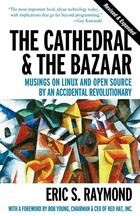GitHub Hits One Billion Repositories: A Milestone Worth Examining
The Billion Repository Milestone
GitHub has officially reached one billion repositories, marking a significant milestone in the platform's history. The billionth repository, somewhat ironically named "shit" by user AasishPokhrel, has sparked conversations about the nature of code repositories and what this achievement really represents for the developer community.
The Art of Milestone Hunting
This achievement appears to be the result of deliberate timing rather than coincidence. The repository creation follows a pattern we've seen before in tech communities - developers monitoring API endpoints and strategically timing repository creation to claim special numbers. This practice echoes similar milestone hunting in other platforms, from Apple's internal bug tracking systems to OpenStreetMap's changeset milestones.
The technique likely involved monitoring GitHub's API endpoint for repository ID 999,999,999 and creating a new repository the moment it became available. Some developers even create multiple repositories as buffers, deleting the ones that don't hit the target number.
What This Says About Repository Culture
The billion repository milestone raises fascinating questions about the nature of code repositories today. Many repositories serve purposes beyond traditional software development - they're used for documentation, personal notes, experiments, and even jokes. This diversity reflects how GitHub has evolved from a simple code hosting platform to a broader collaborative workspace.
The somewhat crude name of the billionth repository has prompted reflection on repository quality versus quantity. While some see it as commentary on the proliferation of purposeless repositories, others view it as a harmless celebration of a technical milestone.
The Centralization Advantage
This milestone highlights one of GitHub's key advantages: discoverability. While countless repositories exist across self-hosted Git servers, GitLab instances, and other version control systems, GitHub's centralization makes code searchable and accessible. This raises questions about whether we need better discovery mechanisms for the distributed world of code hosting.
Looking Forward
The billion repository milestone isn't just a number - it represents the democratization of software development and the explosion of code sharing over the past decade. From solo side projects to enterprise applications, each repository tells a story of human creativity and problem-solving.
As we celebrate this achievement, it's worth considering what the next billion repositories might look like and how the developer community will continue to evolve in an increasingly distributed and collaborative world.




